|
A court in Australia has rejected a coal company’s bid to dismiss a youth climate lawsuit challenging the Galilee Coal Project in Queensland on human rights grounds. The lawsuit, filed in May by a group called Youth Verdict, will now be able to proceed in Queensland Land Court under the state’s new Human Rights Act. This is the first time a coal mine has been challenged over human rights violations due to the climate crisis. The Galilee Coal Project, an initiative of billionaire Clive Palmer’s Waratah Coal company, is expected to generate almost 3 billion tons of greenhouse gas emissions. Climate scientists say avoiding the worst impacts of a warming planet requires a rapid shift away from fossil fuels, especially coal. The Galilee project already has federal and state approval but awaits a final approval from the Queensland Land Court. Youth Verdict wants the project nixed, arguing that developing new coal projects will worsen the climate crisis and disproportionately harm young people. Waratah Coal, the defendant in the case, moved to strike or dismiss the youth plaintiffs’ human rights claims. The judge ruled on August 28, 2020 to deny the motion to strike, clearing the way for the case to advance and for the court to consider the plaintiffs’ rights-based objections to the coal project. “As young people, we feel it is our right to object to the impacts of new fossil fuel projects on our human rights and we’re pleased that Clive Palmer’s attempt to stop that has failed,” Youth Verdict spokesperson Monique Jeffs said in a press release. The Australian-based environmental law firm Environmental Defenders Office (EDO) is representing Youth Verdict and a conservation group called the Bimblebox Alliance in their legal challenges to Clive Palmer’s coal project.
“This decision has upheld the new Human Rights Act against an application which would have limited the application of the law and constrained the ability of charities to take action to protect human rights,” EDO principal solicitor Sean Ryan said of the court’s decision to deny the motion to dismiss. “Young people have the right to stand up for a safe and healthy future,” Jeffs added. “New fossil fuel projects must consider the impact to human life, and that includes Clive Palmer’s Waratah Coal project.”
2 Comments
San Mateo County and five other California communities suing oil companies to recover costs associated with climate impacts will now have to wait before their suits proceed in state court.
On August 25, 2020 a three-judge panel on the Ninth Circuit Court of Appeals granted the oil companies’ request for a stay or pause of an order sending the cases back to California state court where they were originally filed. The Ninth Circuit panel upheld that remand order in a May 26, 2020 ruling, which the companies unsuccessfully contested with the panel recently denying a petition for a rehearing en banc, meaning review by the full court. The companies are next turning to the U.S. Supreme Court. The Ninth Circuit has paused the cases for 90 days while the companies prepare to file a petition with the Supreme Court. If the petition is granted the stay will extend, but if the high court denies the companies’ bid then the California cases will re-start immediately in state court. The lawsuits target over two dozen fossil fuel companies including some of the largest investor-owned oil and gas companies like BP, Chevron, ExxonMobil and Marathon Petroleum. The plaintiffs include the California cities of Imperial Beach, Richmond and Santa Cruz and the counties of San Mateo, Marin and Santa Cruz. These coastal communities are facing significant costs from climate impacts like flooding and sea level rise, and the lawsuits demand the fossil fuel companies help pay for harms stemming from use of their products. The lawsuits include state law claims of nuisance and product liability theories like failure to warn and are similar to cases against manufacturers of harmful products like opioids, lead paint and tobacco, where the industries also misled the public about the risks of their products in order to protect profits. The fossil fuel companies are currently battling over a dozen climate cases brought by cities and counties and several states across the country. The companies want these cases in federal courts where they have had early success getting a few cases dismissed, including a case filed by the California cities of Oakland and San Francisco. That case is now revived with the same Ninth Circuit panel deciding in favor of the cities on appeal and also recently denying defendants’ request for a rehearing. The oil companies plan to take the Oakland-San Francisco case to the Supreme Court as well, though the Ninth Circuit panel has not yet paused this case. The companies already have a petition pending before the Supreme Court in a climate case brought by Baltimore, Md. That case is simultaneously proceeding in Maryland state court. The Supreme Court is expected to decide if it will accept or decline the petition in the Baltimore case during the court’s conference on September 29, 2020. Honolulu Climate Case Gets Green Light Meanwhile, a federal district court in Hawaii has decided to allow a climate lawsuit filed earlier this year by the city and county of Honolulu to proceed, following a pause on the case pending resolution of the California cases by the Ninth Circuit. Honolulu filed its case on March 9, 2020 in state court and the oil companies moved the case to federal court, where the judge issued a stay in early May. Judge Derrick K. Watson lifted that stay with an order on August 21, 2020, in which he wrote that continued delay “is no longer appropriate” and that “there is not a strong likelihood” of Supreme Court acceptance of petitions in similar climate cases. “Defendants in this case will not be ‘irreparably injured absent a stay;’ a further stay will, however, ‘substantially injure’ Plaintiff by unnecessarily prolonging these proceedings for an indeterminate amount of time,” Watson wrote in his order. The case will now endure the same jurisdictional battle (federal court vs. state court) that has delayed other climate cases from advancing to the merits stage. Honolulu has until September 11, 2020 to file a motion to remand the case back to state court. The oil companies then have until October 9, 2020 to respond and Honolulu may file a reply to that response by the end of October. Story originally published by DeSmog
Advocates for holding fossil fuel companies accountable in court for the substantial costs of climate change are urging New Jersey to sue oil majors like ExxonMobil, as over a dozen municipal and state governments have done over the past three years. A month after a New Jersey senate committee passed a resolution calling on the state to take this kind of legal action, New Jersey’s Monmouth University hosted a virtual panel discussion on Wednesday, August 19 titled “Accountability for Climate Change Harms in New Jersey: Scientific, Legal and Policy Perspectives.” The discussion was intended to outline the case for New Jersey to file a climate accountability lawsuit ahead of the full state senate voting on the resolution, which could come later this month. New Jersey Democratic State Senator Joseph Cryan, one of the lead sponsors of Senate Resolution 57, said during his opening remarks Wednesday that he is hopeful the resolution will pass the full state senate this month. The resolution specifically calls on New Jersey’s governor and attorney general “to pursue legal action against fossil fuel companies for damages caused by climate change.” “This resolution urges the Governor and the Attorney General of the State of New Jersey to join 14 municipalities across the country and the States of Massachusetts and Rhode Island in pursuing appropriate legal action against fossil fuel companies, in order to shift the past and present costs associated with the damage caused by climate change onto the companies responsible for causing those harms,” the resolution states. The New Jersey Senate’s Environment and Energy committee voted to advance the resolution on July 20, 2020. The climate accountability lawsuits that Rhode Island and cities like Baltimore, Maryland, and Boulder, Colorado, have filed against major fossil fuel companies demand that the companies help pay for the rising costs of climate impacts such as sea level rise, severe storms and flooding, and extreme heat and precipitation. The lawsuits allege the companies knew these impacts would occur from using their products, yet they publicly downplayed the dangers of fossil fuels in order to block climate policies. “Essentially the companies knew about the problem and they misled the public,” Marco Simons, an attorney at EarthRights International, said during the panel discussion. Simons is currently representing several Colorado communities in climate litigation against oil companies Exxon and Suncor. New Jersey is already experiencing climate impacts like severe flooding, and billions of dollars in coastal property is at risk from rising seas. A 2019 study from the Center for Climate Integrity, a nonprofit that supports climate accountability lawsuits, estimated that New Jersey will have to spend $25 billion on seawalls by 2040 to protect lives, homes, and infrastructure from sea level rise, the sixth highest price tag for the lower 48 U.S. states. “Who pays for damages and adaptation?” This is the key question underlying these climate lawsuits, Brenda Ekwurzel, director of climate science for the Union of Concerned Scientists Climate & Energy Program, explained during the panel discussion. Ekwurzel discussed research she and colleagues have conducted, called climate attribution science, showing that a large share of global warming emissions can be traced back to 88 companies, dubbed the “carbon majors.” ExxonMobil alone is responsible for more than 3 percent of global CO2 emissions since 1965, Simons said. He said that because Exxon is incorporated in New Jersey, the Garden State has an especially compelling opportunity to hold the company accountable. Simons did caution that lawsuits are “not a comprehensive solution” to the climate crisis and may not even be the best option, but said they do have a role to play absent public policy that addresses the enormous costs of adapting to unavoidable climate impacts. “The only alternative right now is that the costs are going to fall on taxpayers and these costs are substantial,” he said. Nathaly Agosto Filion, Chief Sustainability Officer of the City of Newark and another panelist during Wednesday’s event, agreed that climate accountability litigation is worth pursuing as a strategy for communities faced with enormous climate resilience costs. The option of “holding the big carbon majors accountable is an incredible opportunity for municipalities facing these costs,” she said. Australia Says Torres Strait Islanders' Human Rights Complaint on Climate Should Be Tossed8/14/2020 Responding to a world-first legal complaint on climate change brought by a group of indigenous Australian islanders to the United Nations Human Rights Committee, the Australian government claimed that climate harms are distant “future” risks and denied it has a legal responsibility to act on climate given that Australia’s greenhouse gas emissions are relatively small in a global context.
“Australia’s response to the Islanders’ complaint states the case should be rejected because it concerns future risks, rather than impacts being felt now. Australia’s lawyers also stated that because the country is not the main or only contributor to global warming, climate change action is not its legal responsibility under human rights law,” a press release from the environmental law organization ClientEarth, which is providing legal representation to the Islanders, explains. Australia’s official response has not been made public. The complaint focuses on alleged human rights violations stemming from climate change, such as the right to life, family, and culture. A group of eight indigenous Australians from the Torres Strait Islands brought the complaint to the UN Human Rights Committee in May 2019. The Torres Strait Islands are situated off the northern tip of Queensland, Australia between the Australian mainland and Papua New Guinea. As low-lying islands, they are particularly vulnerable to climate impacts like rising seas, extreme flooding and erosion. According to ClientEarth, king tides worsened by rising seas already threaten homes and damage important cultural sites like burial grounds. “Many Islanders are worried their islands could disappear in their lifetimes, without urgent action – a concern backed by the latest climate science,” the press release states. The legal action is the first in the world brought by low-lying islands against a nation state on the issue of climate change, and the first climate case against Australia on human rights grounds. Australia is a signatory of an international human rights treaty, the International Covenant on Civil and Political Rights. The complaint alleges violations of that treaty and was brought before the UN body that monitors compliance with the ICCPR. The Islanders have called on the Australian government to provide funding for emergency measures such as sea walls and also to slash the country’s greenhouse gas emissions by at least 65 percent (below 2005 levels) by 2030 with a goal of reaching net zero emissions by 2050, and additionally to phase out thermal coal. The government has promised $25 million in funding for sea walls. “This is a start, but it is only crumbs when you consider the scale of the problem and the fact that this will need to be split over 18 islands already experiencing major impacts. And it doesn’t address Australia’s ongoing contribution to climate change through our fossil fuel exports and domestic emissions,” Yessie Mosby, one of the Islanders bringing the complaint, wrote in a new piece published in the Guardian. According to ClientEarth, now that Australia has officially responded to the complaint, the Islanders will provide their response before October this year. Australia is urging the UN Human Rights Committee to reject or dismiss the legal action. “It’s shameful that indigenous communities on Australia’s climate frontline are being told that the risk of climate change to their human rights is merely a ‘future hypothetical’ issue, when scientists are clear these impacts will happen in coming decades,” Sophie Marjanac, a ClientEarth lawyer representing the Islanders, said. “My clients are watching as their traditional lands, their homes, their sacred sites and burial grounds are being eroded by the steadily encroaching waves,” she added. “Climate change risk is foreseeable and only preventable through immediate action in the present. States like Australia have legal duties to protect the human rights of their citizens.” Even if the UN Human Rights Committee decides in favor of the Islanders that Australia is violating human rights law, Australia would not be forced to comply with the decision. However, it would increase international pressure on Australia and nations usually do comply with rulings by the Committee. Big Oil Faces Mounting Legal Battles Over Climate Threats to its New England Oil Terminals8/13/2020 Story originally published by DeSmog
A New England-based environmental law group is taking major oil companies to court, claiming the firms have failed to adapt some of their petroleum storage terminals to withstand increasingly severe storm and flooding events worsened by the climate crisis. The Conservation Law Foundation (CLF) is currently suing both ExxonMobil and Shell in two separate lawsuits brought under federal laws regulating water pollution and hazardous waste, including the Clean Water Act. The cases center around coastal oil terminals and their vulnerability to climate change impacts like sea level rise and heightened storm surge. Exxon operates an oil terminal in Everett, Massachusetts, just outside of Boston, that sits along the Mystic River. Shell's terminal is located in Providence, Rhode Island, along the Providence River. CLF argues that these facilities pose a grave risk not only to the waterways and environment but also the surrounding communities, given that the oil terminals currently are not designed to standards that account for climate impacts. “This facility is the ticking time bomb,” CLF attorney Chris Kilian said, referring to the Providence terminal, during a hearing held via Zoom on Thursday, August 13. The federal judge presiding over the case, District Judge William Smith, raised a similar point in questioning one of the lawyers representing Shell. Judge Smith said the situation prompting CLF to bring its lawsuit seems to be that “a bomb is going to go off, we just don’t know when.” A major storm or flooding event, which climate scientists say are becoming more intense because of climate change, would represent that proverbial “bomb,” resulting in a potential environmental disaster should Shell's storage tanks rupture or otherwise leak or spill petrochemicals into the Providence River. This situation has already played out elsewhere in the U.S., such as in Houston during Hurricane Harvey in 2017 and in New Jersey and New York in the wake of Hurricane Sandy in 2012. Oil and petrochemical facilities hit during the storms spilled their hazardous contents into waterways and neighboring communities. Shell’s oil terminal in Providence, as CLF pointed out during the hearing, experienced “uncontrolled releases” of pollution during heavy flooding that occurred in 2010. Still, Shell argues that climate risks are “speculative” and not substantial in the near-term, and therefore it is not required to take action to fortify its Providence oil terminal. Shell is trying to get the case dismissed and further argued that concerns about designing the facility to withstand extreme weather events should have been raised during a recent permitting process, when the oil major was obtaining a new permit for its Providence facility in 2019. CLF, which first filed the case against Shell in 2017, argued that it is simply suing to enforce the permits. According to CLF, the permits impose a duty on Shell to adhere to best engineering practices in light of climate risks. “It is defendants’ obligations to employ best engineering practices to address the risks of climate change,” CLF’s Kilian said during the hearing. “They have done nothing to protect Providence River, the surrounding communities, and even their own facility from the known and foreseeable risks from extreme precipitation that are already occurring.” Judge Smith did not make an immediate ruling in the case but said he expects to issue a decision “in the near future.” CLF vs. Big Oil in Massachusetts and Connecticut In Massachusetts, CLF is pursuing a very similar case against ExxonMobil, and the judge in that case issued a stay, or pause, on proceedings earlier this year. The judge had ruled last year that the case could proceed, but in March he decided to hit pause while the U.S. Environmental Protection Agency reviews and updates Exxon’s permit for its Everett terminal, with a renewed permit expected by 2022. CLF is appealing that decision, pushing for the case to go ahead despite the permitting process. The environmental organization may soon have yet another climate adaptation case on the books in Connecticut, this time targeting owners of vulnerable oil terminals in New Haven. CLF recently sent letters of intent to sue to three oil companies, Gulf, Magellan, and Shell, that own and operate terminals in flood-prone areas of this coastal Connecticut city. “The communities surrounding these terminals are constantly at risk of being inundated with a stew of oil and toxic materials. It’s long past time for these companies to step up and prepare their facilities for flooding and extreme weather,” CLF President Brad Campbell said in a press release announcing the impending New Haven lawsuit. “The courts must hold them accountable under current law to avoid catastrophe.” Meanwhile, communities across the U.S. are suing major oil companies like Chevron, ExxonMobil and Shell over the mounting costs of climate impacts, claiming these companies publicly downplayed climate risks even while taking precautions to protect their own infrastructure from these risks, and in some cases, even asking taxpayers to help cover those costs. The oil companies defending against climate liability lawsuits brought by California communities received yet another setback in court with the Ninth Circuit Court of Appeals denying the companies’ petition for a rehearing or en banc review in a case filed by the cities of Oakland and San Francisco. A three-judge panel from the Ninth Circuit issued an order denying the petition on August 12, just a week after the same panel denied a similar request from fossil fuel company defendants in cases filed by San Mateo County and five other California cities and counties.
The California climate cases – which demand that major fossil fuel producers help pay for climate adaptation costs like building sea walls – have been embroiled in a jurisdictional battle between federal court (the preferred venue of the fossil fuel companies) and state court where the communities originally filed the cases. Federal District Judge William Alsup ruled in 2018 that the Oakland/San Francisco case belonged in his federal court and subsequently dismissed the case, handing the five oil company defendants - BP, Chevron, ConocoPhillips, ExxonMobil, and Shell – an early victory. On appeal, however, the Ninth Circuit panel revived the case and ordered it be sent back to Alsup for him to consider if there is an alternative basis for his (federal) jurisdiction. That order was issued on May 26, 2020 along with a separate order in the San Mateo cases upholding the federal district court’s 2018 decision to remand (or send back) those cases to state court. The defendants led by Chevron asked for an en banc (meaning full court) review of the May 26 order in the San Mateo cases, and that ask was denied on August 4. Additionally, Chevron and fellow Big Oil companies petitioned for a Ninth Circuit panel re-hearing and/or en banc review in the Oakland/San Francisco case. The panel again unanimously voted to deny that petition, and in both cases the full Ninth Circuit expressed no interest in taking up the petitions. "In another unanimous ruling, the 9th Circuit Court of Appeals has told the fossil fuel companies that they are wrong," San Francisco City Attorney Dennis Herrera and Oakland City Attorney Barbara J. Parker said in a joint statement. "First it was decades of deception and disinformation; now these companies have been trying to drag their feet in court. It’s time to move these cases forward in state court, where they belong, and hold fossil fuel companies accountable for the harms, costs, and damage they are imposing on our cities.” But the defendants are not giving up their fight to move the cases to federal court, where they initially succeeded in getting the Oakland/San Francisco case, as well as a similar climate lawsuit filed by New York City, dismissed entirely. On Monday, August 10 Chevron filed a motion in the Ninth Circuit Court requesting a stay or pause on proceedings in the San Mateo cases while the defendants ask the Supreme Court to review the jurisdiction issue. Fossil fuel companies already have such a petition pending before the Supreme Court in a climate lawsuit brought by Baltimore, Md. Baltimore’s case is proceeding in Maryland state court even as the Supreme Court petition is pending. And another climate liability case brought by the state of Rhode Island is proceeding in state court at the same time as the fossil fuel companies are appealing that case’s remand order to the First Circuit Court of Appeals. The First Circuit has scheduled oral arguments for September 11, 2020. The California cases would be one step closer to discovery and a trial if the motion to stay (in the San Mateo cases) is denied. The Oakland/San Francisco case is slightly more complicated because it has to go back to Judge Alsup for his reconsideration before it returns to state court. The oil companies could try to pause that case as well. As ExxonMobil seeks to dismiss a climate-related fraud lawsuit filed against the company by the Massachusetts Attorney General’s Office, the oil major and its industry peers received yet another court setback in climate litigation brought by California communities. On Tuesday, August 4 a Ninth Circuit Court of Appeals panel rejected the oil companies’ petition for a full court or en banc review of a May 26 decision by that same panel upholding an order to send (remand) six climate lawsuits filed by California cities and counties back to state courts. The denial of the en banc petition means the oil companies will likely be forced to fight these California climate cases in state courts, where they may have a harder time getting the cases dismissed.
The counties of San Mateo, Marin and Santa Cruz and the cities of Imperial Beach, Richmond and Santa Cruz are suing over two dozen fossil fuel companies seeking monetary damages to help pay for costly climate impacts like sea level rise. The cities and counties filed their lawsuits in California state courts under state law claims such as nuisance and product liability theories, but the defendants have fought to remove the cases to federal courts where they have succeeded in getting several other climate lawsuits dismissed. On May 26, 2020 a three-judge panel from the Ninth Circuit Court of Appeals (a federal court) upheld a federal district judge’s order that these cases advance in California state courts. The defendants then filed a petition for a re-hearing en banc, meaning from the full appeals court. The Ninth Circuit panel that initially ruled against the fossil fuel companies, including judges Sandra S. Ikuta, Morgan B. Christen and Kenneth K. Lee, issued an order Aug. 4 denying the petition for a re-hearing en banc. According to the docket entry, “The full court has been advised of the Petition for Rehearing En Banc, and no Judge has requested a vote on whether to rehear the matter en banc.” In other words, the court was simply not interested in taking up the companies’ request in this matter. "The 9th Circuit has unanimously ruled – again – that Marin County’s lawsuit to hold fossil fuel companies accountable for climate change related damages belongs in state court where it was originally filed. We appreciate the court’s quick decision and look forward to moving our case toward discovery and trial," Marin County Counsel Brian Washington said in a statement. There is still a pending petition for a re-hearing either en banc or from the same three-judge panel in a similar climate case brought by the California cities of Oakland and San Francisco. A federal judge had dismissed that case, which targets the five largest investor-owned oil and gas companies, but the Ninth Circuit panel revived the case in a separate ruling on May 26, 2020. Meanwhile, ExxonMobil – a defendant in all of these climate cases – is looking to dismiss a case filed in October 2019 by Massachusetts Attorney General Maura Healey claiming the oil major misled Massachusetts’ consumers and investors on the risks of climate change. Exxon tried unsuccessfully to boot that case to federal court, so now it is forced to fight the litigation in Massachusetts state court. As Bloomberg reported on August 4, Exxon “will seek to dismiss the suit under the state’s so-called anti-Slapp law, which prohibits the use of litigation that has the effect of punishing a defendant for statements on matters that are under consideration by a legislative or judicial body, according to a July 30 notice in state court in Boston.” Exxon is therefore arguing that the Massachusetts lawsuit is an attempt to improperly punish the company for its views on climate change. “Exxon has made repeated attempts to stonewall my office’s efforts to seek the truth about Exxon’s climate deception,” Healey told Bloomberg News in an emailed statement. “This meritless motion is no different.” |
Archives
July 2024
Categories |
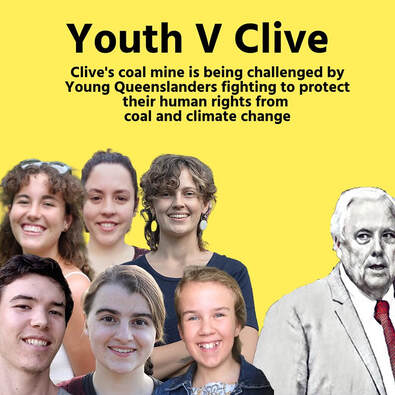

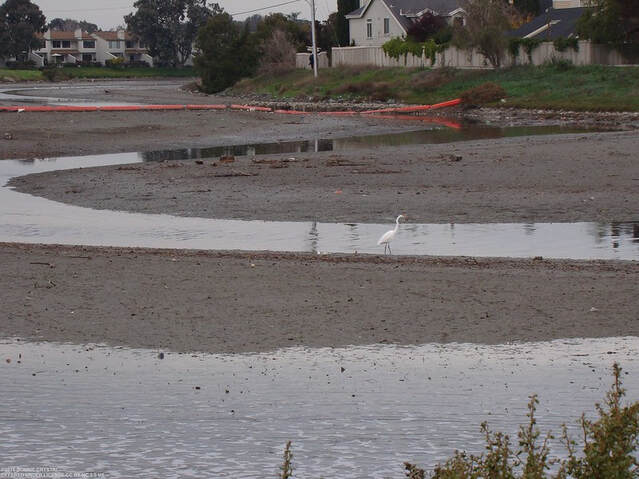
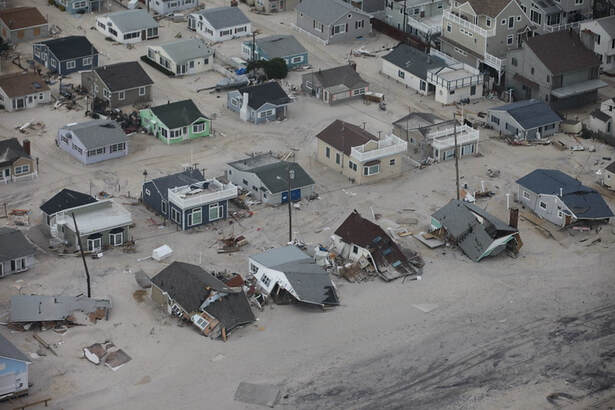
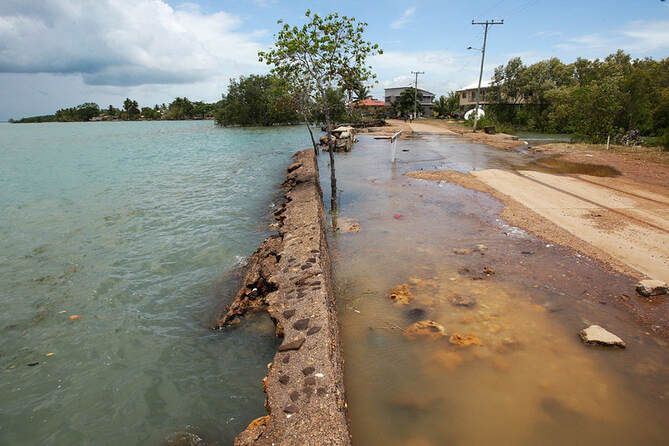
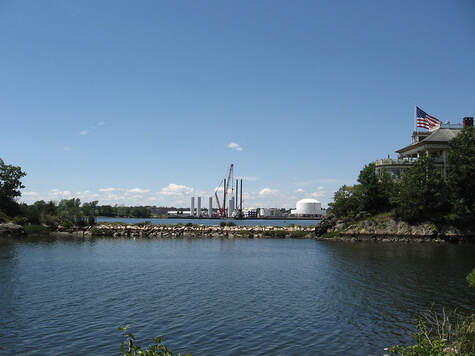


 RSS Feed
RSS Feed